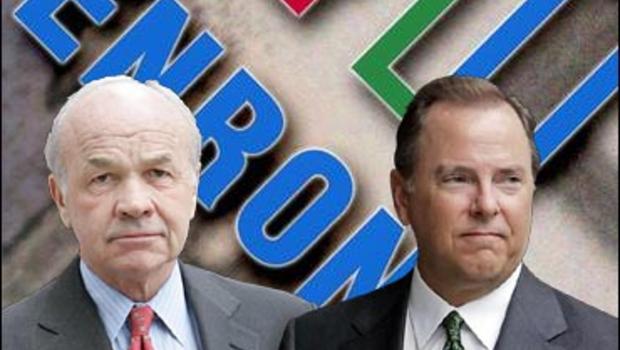
Kyle Field, Texas A&M University, College Station, Texas.

Qwest Field, Home of the Seattle Seahawks, Seattle, Washington.
Daily Archives: February 2, 2006
The $138,000 oversight
 Something tells me that this is not going to turn out well:
Something tells me that this is not going to turn out well:
Texas Southern University President Priscilla Slade has reimbursed the university more than $138,000 for the cost of landscaping her new home, according to records released Wednesday.
Slade, who wrote the check Monday, is hoping to get back into the good graces of the university’s board of regents before they meet Friday to discuss her future. She is also under scrutiny for charging roughly $87,000 to TSU for household furnishings, according to a source familiar with the inquiry.
Slade has declined to comment publicly. Instead, she has asked Bill Miller, an Austin-based political consultant, to help her address concerns raised by regents. None of the nine current regents, who are appointed by the governor, were on the TSU board when Slade was hired in 1999.
Slade has told regents that the university paid the landscaping bill for her 17,675-square-foot property by mistake.
My sense is that President Slade has hired the wrong professional.
By the way, the Chronicle article also notes that President Slade has an accounting degree from the University of Texas at Austin.
Shoe Drops on Former AIG and General Re Execs
 Almost lost amidst the publicity over the first day of testimony in the Enron-related Lay-Skilling trial was the news that a Virginia federal grand jury had issued indictments against former General Re Chief Executive Ronald Ferguson, former General Re Chief Financial Officer Elizabeth Monrad, General Re’s former Assistant General Counsel Robert Graham, and the former AIG reinsurance executive Christian Milton on charges of conspiracy to commit fraud for their roles in a controversial five-year-old transaction that has been at the center of the governmental investigations into AIG and General Re over the past year.
Almost lost amidst the publicity over the first day of testimony in the Enron-related Lay-Skilling trial was the news that a Virginia federal grand jury had issued indictments against former General Re Chief Executive Ronald Ferguson, former General Re Chief Financial Officer Elizabeth Monrad, General Re’s former Assistant General Counsel Robert Graham, and the former AIG reinsurance executive Christian Milton on charges of conspiracy to commit fraud for their roles in a controversial five-year-old transaction that has been at the center of the governmental investigations into AIG and General Re over the past year.
Of course, AIG is Maurice “Hank” Greenberg’s old company and General Re is a division of Warren Buffett’s Berkshire Hathaway.
Ferguson and Ms. Monrad are now the two highest-level former General Re executives to be charged with crimes in the General Re-AIG accounting investigation, and Mr. Milton is the only former AIG executive to have been charged in the probe. Last summer, two former General Re employees — John Houldsworth and Richard Napier — copped pleas on fraud charges and presumably will testify against the newly-charged executives.
Lay-Skilling, Week One – The First Witness
 Former Enron investor relations chief Mark Koenig led off the prosecution’s presentation of evidence yesterday in the criminal trial of his former bosses, Ken Lay and Jeff Skilling, and it quickly became clear that the Enron Task Force’s boring approach to putting on a case that almost caused a jury uprising in the earlier Enron Broadband trial may also be a problem for the prosecution in the Lay-Skilling trial.
Former Enron investor relations chief Mark Koenig led off the prosecution’s presentation of evidence yesterday in the criminal trial of his former bosses, Ken Lay and Jeff Skilling, and it quickly became clear that the Enron Task Force’s boring approach to putting on a case that almost caused a jury uprising in the earlier Enron Broadband trial may also be a problem for the prosecution in the Lay-Skilling trial.
As the Mary Flood/Chronicle, Carrie Johnson/WaPo, and Alexei Barrionuevo/NY Times articles all report, Koenig testified about several instances in which he allegedly prepared reports and presentations at the direction of Skilling and Lay that misled investors and analysts about the performance of Enron’s Broadband unit and Energy Services units.
However, to get to the nuggets of relatively exciting testimony, the jury had to endure hours of mind-numbing and largely irrelevant testimony regarding Enron’s structure, the company’s bankruptcy and related matters.
As a result, the prosecution could not finish its direct examination in an entire day of testimony and apparently is going to use a good part of today for further direct examination.
If that schedule holds, cross-examination of Koenig will almost certainly take a couple of days, which means that the second witness in the case — former Enron Broadband executive Ken Rice — may not begin until Tuesday afternoon or Wednesday of next week.
So much for the prosecution’s earlier prediction that it will take nine weeks to put on its case.
At any rate, one of the problems with Koenig’s testimony — which is being given under a plea deal with the government — is that it is not based on any meaningful involvement in the mechanics of how Enron’s executives evaluated its financial affairs and earnings.
Stated another way, Koenig was involved in how Enron’s financial matters were presented, but not in how they were determined.
As a result, his knowledge of the company’s financial affairs is a mile wide and an inch deep, a point that will almost certainly be hammered home by the defense on cross.
Meanwhile, the fact that the prosecution is relying so heavily on witnesses such as Koenig who have copped plea deals in return for favorable prosecution testimony will become an increasingly important issue as the the trial proceeds.
Houston criminal defense attorney Kent Schaffer — one of the half-dozen attorneys providing legal analysis for the Chronicle on the trial — noted in a blog post in the Chron on why people such as Koenig enter into plea bargains. The sad fact is that people often do plead guilty to crimes that they do not think that they really committed, particularly when the defendant sees the draconian sentence that can result from protesting one’s innocence. As Schaffer notes:
“Get ready to see grown men in Oxford suits and wingtip shoes rolling over, playing dead, and barking while on their hind legs; trying to earn a few extra biscuits.”
